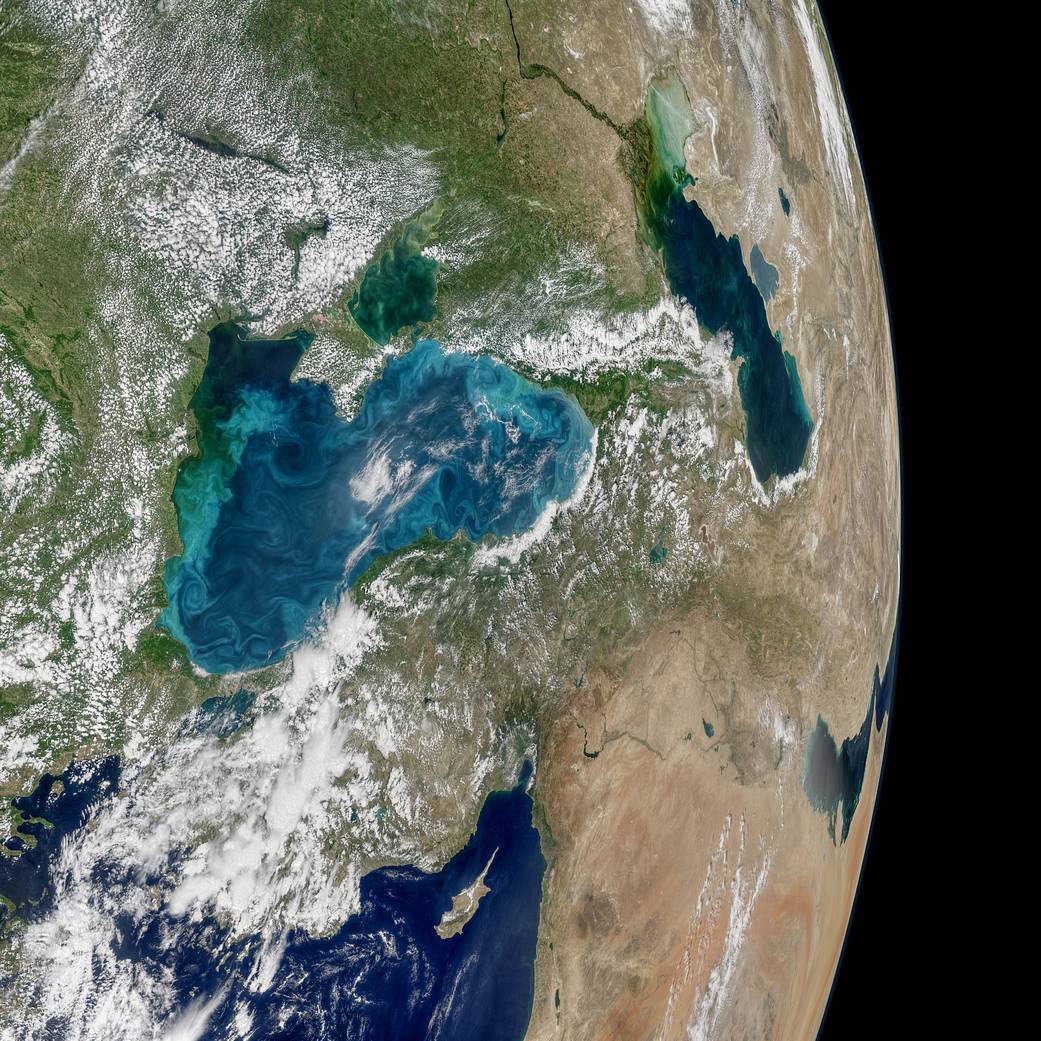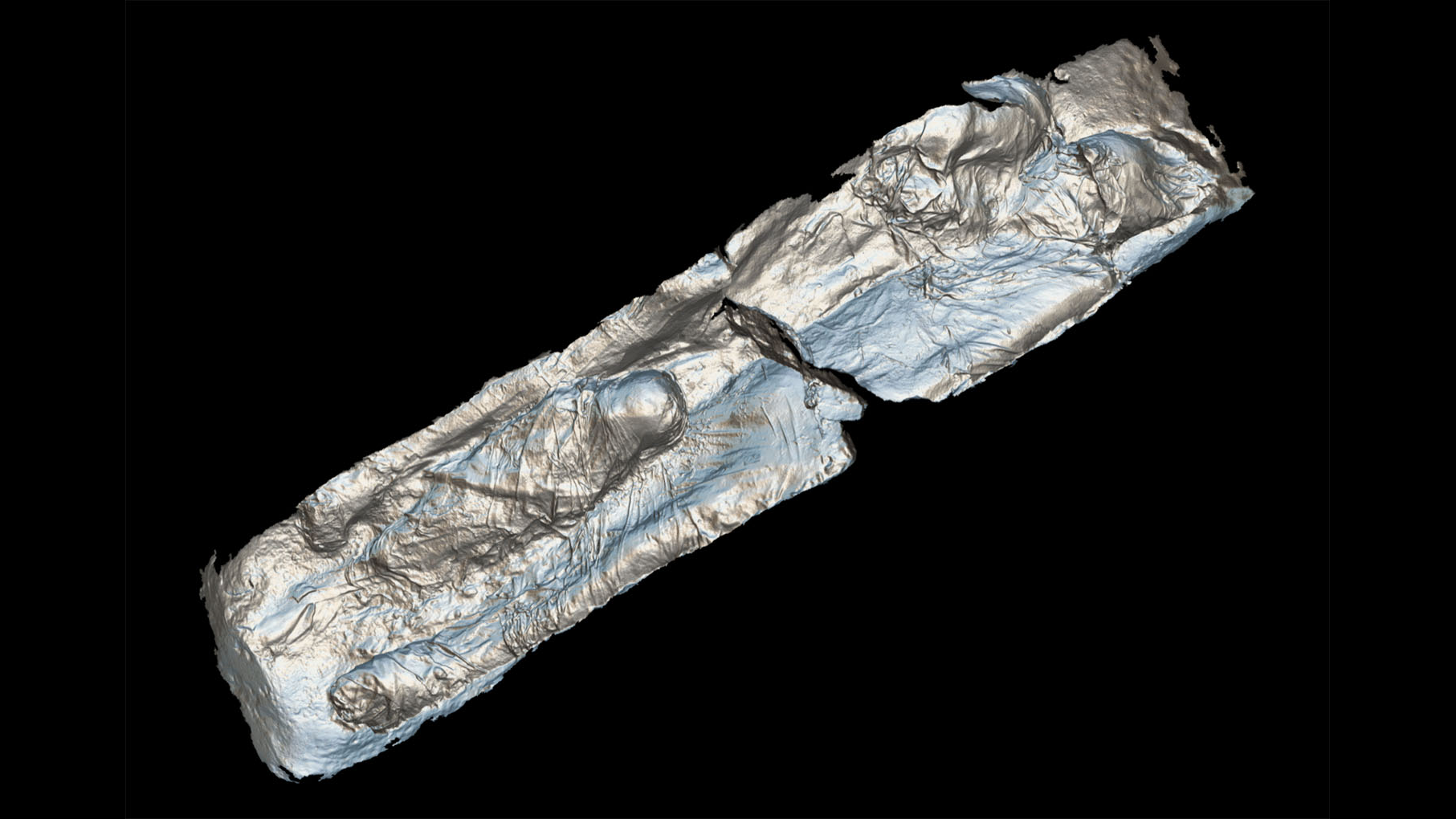Tiny Organisms Turn the Black Sea Turquoise in Amazing NASA Earth Photo

Get the world’s most fascinating discoveries delivered straight to your inbox.
You are now subscribed
Your newsletter sign-up was successful
Want to add more newsletters?
Join the club
Get full access to premium articles, exclusive features and a growing list of member rewards.
Turquoise swirls in the Black Sea — caused by phytoplankton carried on local water currents — shine brightly in a new image from NASA's Aqua satellite.
Phytoplankton are tiny organisms that feed on sunlight and dissolved nutrients. The image shows the rivers Danube and Dnieper bringing these nutrients out to the Black Sea, where the phytoplankton feed on them, NASA officials said in a statement. In turn, these small organisms are eaten by larger animals such as fish and shellfish. [Earth from Space: More Amazing Photos]
In the Black Sea in particular, a type of phytoplankton community called coccolithophores are visible from afar because of the white calcium carbonate plates that shield their bodies, the statement said. The white is easily visible from space and appears like milk in the water. Diatoms, on the other hand — another type of phytoplankton found in the Black Sea — can make the water look somewhat darker.
In the statement, NASA said the reflectivity from phytoplankton in the Black Sea appears consistent with that of previous years. If the phytoplankton blooms are too large, this can lead to eutrophication, when oxygen is lost from the water and kills marine life.
Follow us @Spacedotcom, Facebook and Google+. Original article on Space.com.
Get the world’s most fascinating discoveries delivered straight to your inbox.

Elizabeth Howell was staff reporter at Space.com between 2022 and 2024 and a regular contributor to Live Science and Space.com between 2012 and 2022. Elizabeth's reporting includes multiple exclusives with the White House, speaking several times with the International Space Station, witnessing five human spaceflight launches on two continents, flying parabolic, working inside a spacesuit, and participating in a simulated Mars mission. Her latest book, "Why Am I Taller?" (ECW Press, 2022) is co-written with astronaut Dave Williams.
 Live Science Plus
Live Science Plus











